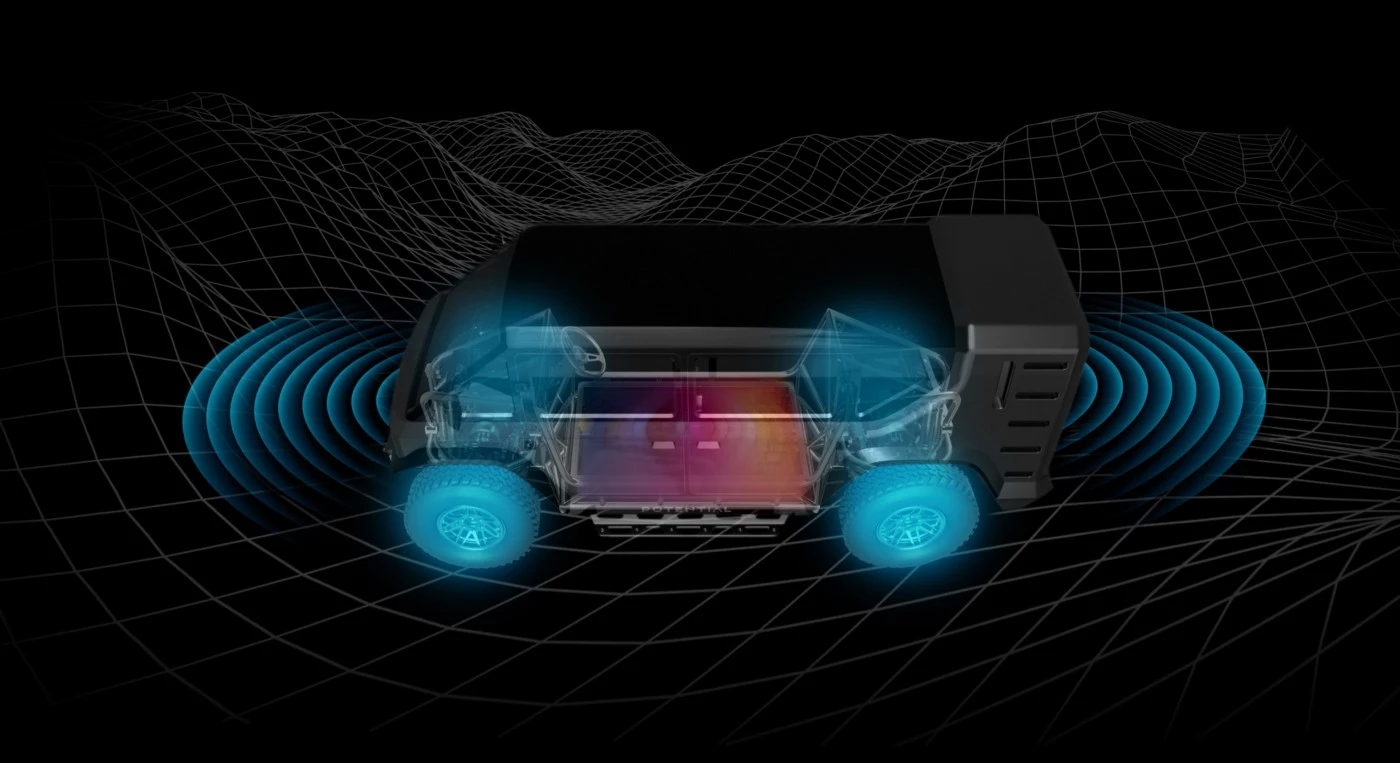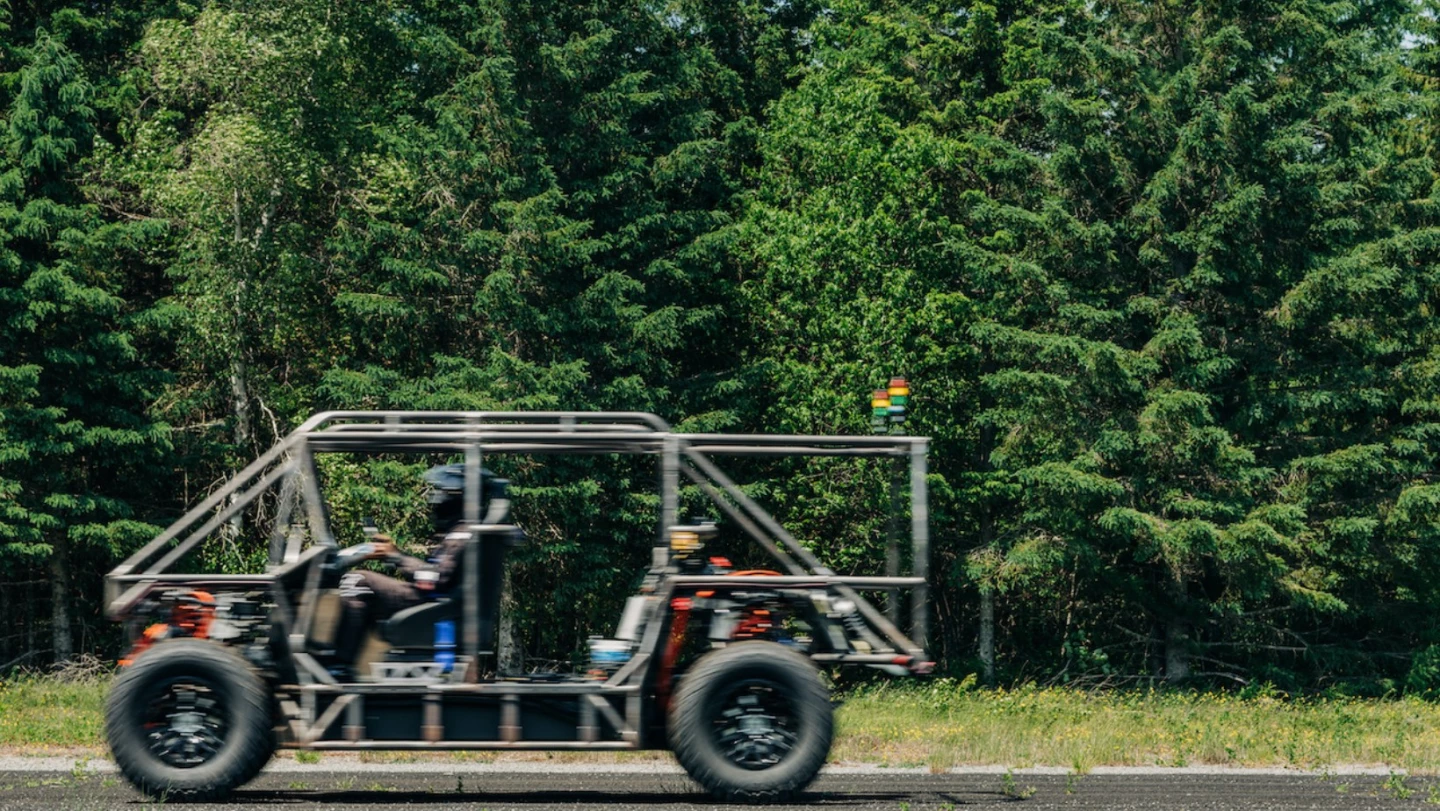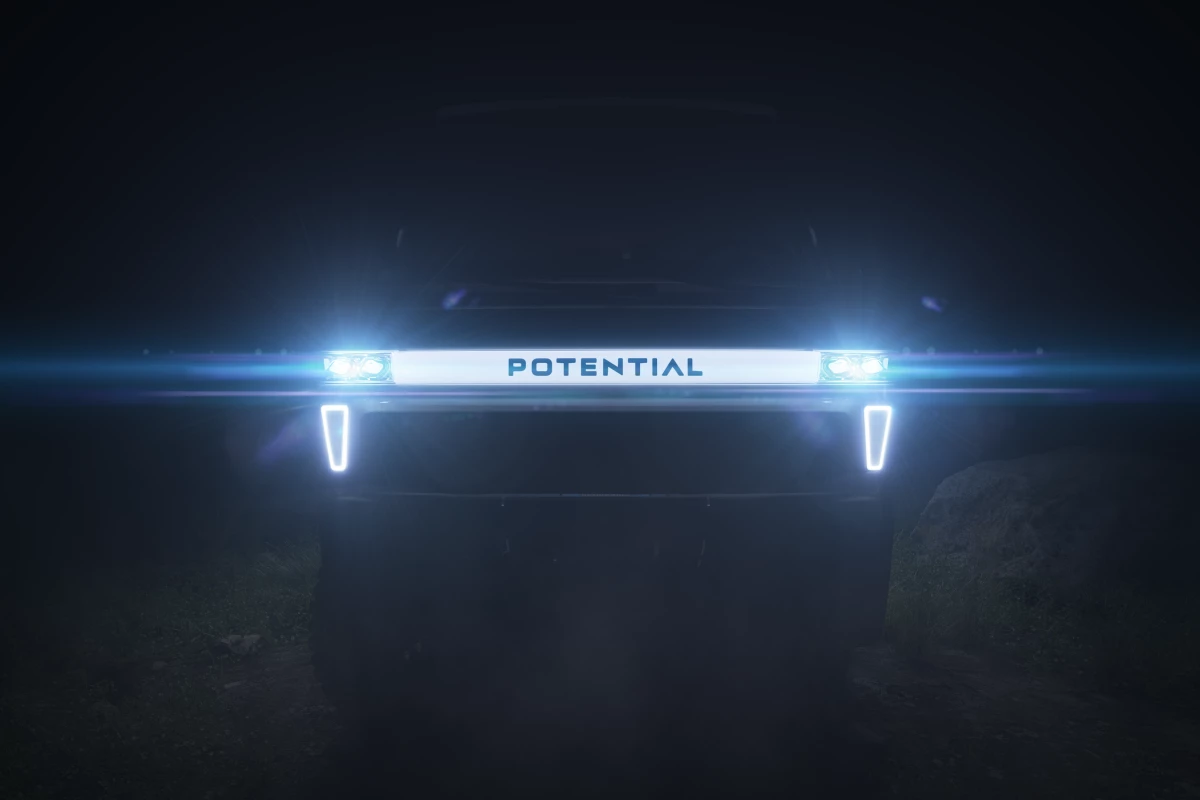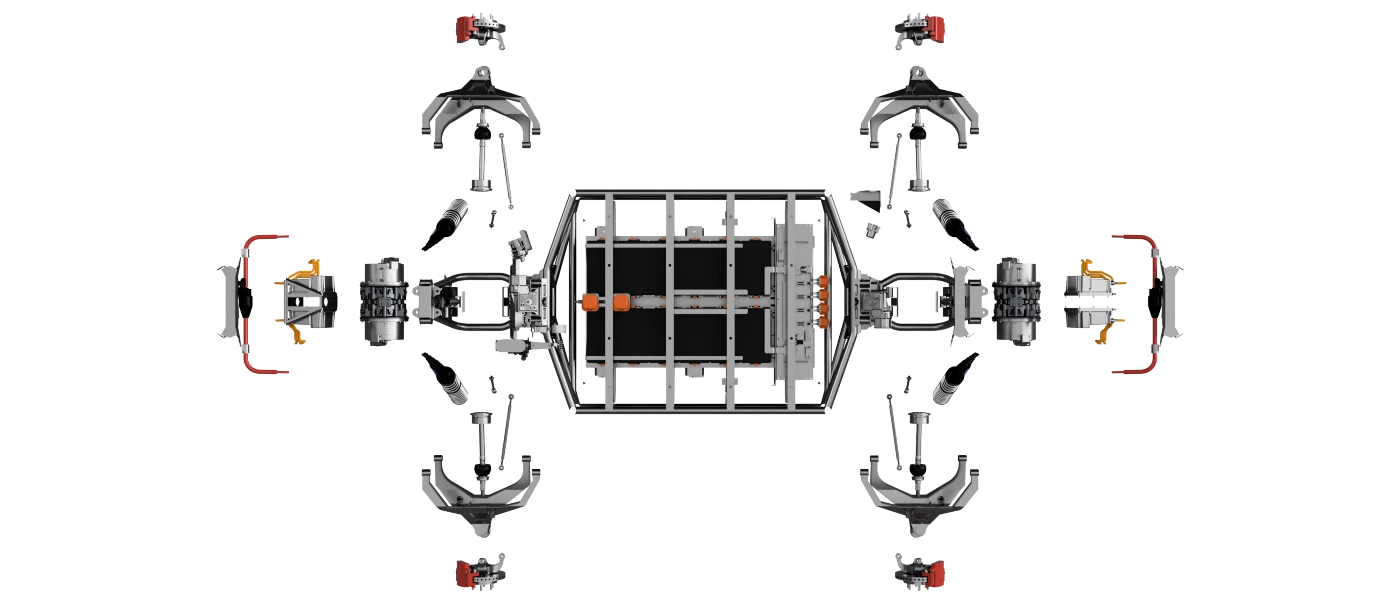Canadian startup Potential Motors is deep in development on what it classifies a new category of vehicle. At first we thought that was the usual startup hyperbole, but the deeper we dove, the more we found ourselves nodding in agreement. Potential looks to parlay the advantages of electric powertrain tech into a compact, go-anywhere UTV camper platform that raises the bar on overland exploration. While exploring the type of tight, rugged routes that leave more traditional overland trucks and RVs behind, the vehicle will utilize a predictive 4-wheel control system to adapt to off-road terrain and smoothen out the ride to base camp.
Potential Motors calls its forthcoming rig a first-of-its-kind "electric adventure UTV," but we think it'd benefit from working the term "camper" or "RV" into the description to differentiate it from every other electric UTV on the market and horizon. Because that really sums up the overarching objective of the vehicle: exploring trails too tight and rough for even a small SUV or truck, making camp at night and pushing onward (or perhaps back to civilization for a charge) in the morning.
Key to the Potential adventure UTV's genre-bending combination of capabilities is its planned 64-in (163-cm) width, which matches that of a Polaris RZR. That's more than 11 in (28 cm) slimmer than a 2022 Toyota Tacoma TRD Off-Road (not including side mirrors) and nearly 10 in (25 cm) slimmer than a 2022 Jeep Wrangler.
Without a "camper" or "RV" designation showing up in Potential's recent teaser announcement, we assumed the company was developing a traditional UTV, perhaps with a roof or bed rack purpose-built for mounting up a rooftop tent. However, the frequent occurrence of the term "overland" and derivatives made us wonder if it didn't have something a little more complex planned.

Potential Motors marketing VP Noah Tompkins tells us that the vehicle is indeed planned as a camper. It's being developed from the ground up for overlanding and will feature a double bed inside an enclosed cabin and a tailgate-style camping kitchen inside a lift-up hatch.
If you're having trouble visualizing what a side-by-side UTV with enclosed camper cabin might look like, you probably shouldn't waste any more brain power. Potential Motors design chief Michael Uhlarik has described a clean-sheet design process that goes well beyond filling out a stereotypical UTV with a camper interior or sliding an off-road electric skateboard chassis underneath a small, ruggedized camper van-like body. An experienced motorcycle designer, outdoor lover and VW Westy van enthusiast, Uhlarik is looking to create something entirely new in close collaboration with the engineering team, innovating a design that closely matches the vehicle's capabilities and objectives.
"Over the next ten months, the Potential Motors design team [and] I are going to realize our vision of what the future of off-road could be," Uhlarik laid out earlier this year, not long after being hired as head of design. "Not just some new lines on an electrified UTV, but a new concept in terms of layout, materials and capability that is going to surprise and delight existing experts as well as novices alike. To do that we are going to spend a lot of time in the woods, in the lab and behind the drawing tablet."
Beyond that, Potential's debut vehicle will remain shrouded in mystery until its formal unveiling. Potential is holding the nuts-and-bolts details close to its chest for now.
The e-UTV RV is really only part of the story, and sure to be the smaller, less interesting part if Potential hits its targets. The company's real work lies in the off-road-specific holistic vehicle control system it's developing. Dubbed Off-Road OS, that system will serve as the foundation of the Potential UTV camper's ambitious set of capabilities, but the ultimate goal is to create a universal platform that other vehicle manufacturers can integrate into their own models.

Something of a driver-assistance package for off-roaders, Off-Road OS ties together the four electric motors and independent suspension with an advanced sensor suite that includes LiDAR, cameras and other units. Those sensors scan the terrain in front of the vehicle and route data through a single central ECU running the company's proprietary software. The system then continuously adjusts torque and shock stiffness at each wheel to optimize real-time performance. As the terrain ahead changes, the vehicle proactively auto-adjusts to meet it head on, ensuring the smoothest ride, even for inexperienced off-road drivers. Or that's the idea, anyway.
Potential's team explains:
Potential has been testing and refining Off-Road OS using a prototype it's named P0. It makes clear that P0 is not an early version of its production UTV but strictly a test bed for the software and hardware technology that will be rolled into the eventual consumer model. So we won't try to read too much into the P0's frame shape or highly powerful 585-hp quad-motor drive.

Potential Motors' real plan looks to be marketing its Off-Road OS tech with the overland UTV to attract interest from existing and future electric vehicle manufacturers. That said, it is planning on selling a very limited run of the overland UTV camper. It's spent the summer releasing Off-Road OS and P0 prototype details and teasing the production UTV for a planned Fall 2022 (Northern Hemisphere) reveal.
We very much look forward to reporting all the details on what the unique four-wheeler can do once it goes live. In the meantime, you can catch glimpses of P0 testing between company exec talk in the 2-minute clip below.
Source: Potential Motors







